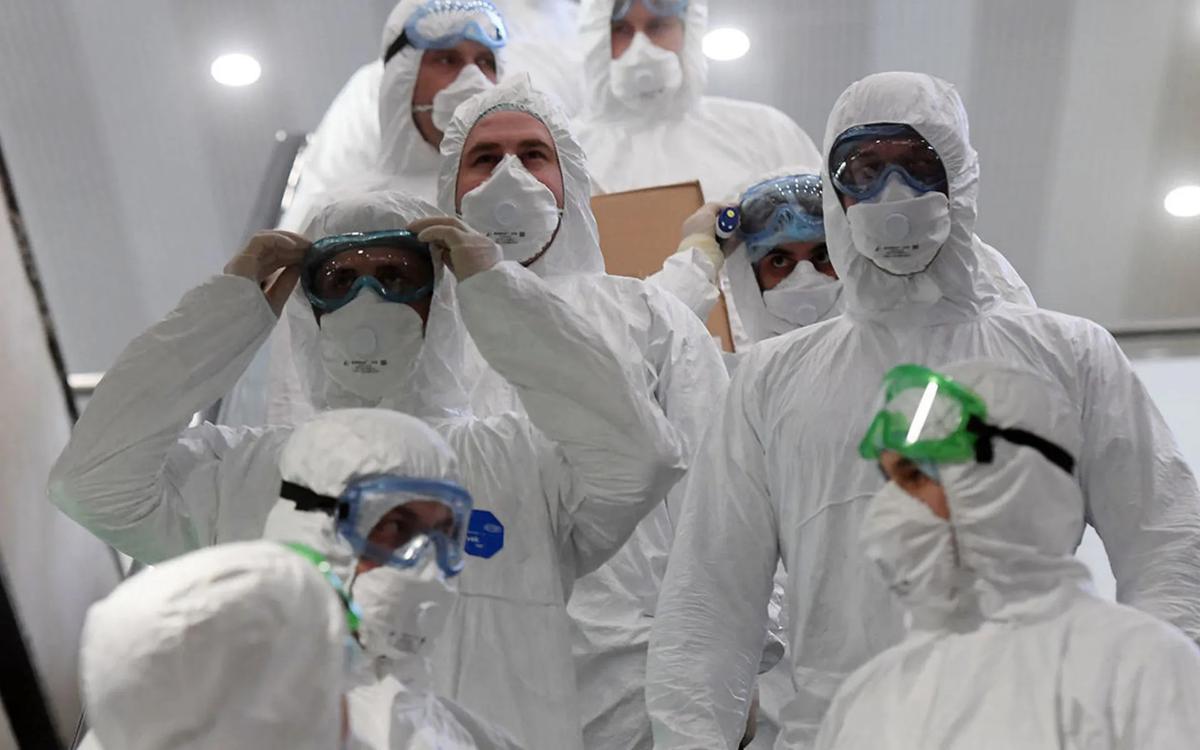Monologues of Russian Medical Workers Struggling with COVID-19 Outbreak
This week we have a special edition for you.
We are bringing to light monologues of medical workers battling deadly coronavirus all across Russia. Their raw testimonies would tell you more about the outbreak in the world’s largest country than any statistics or foreign reports.
Stories of struggle.If official data is to be believed, there are 80,000 cases of COVID-19 reported by Russian authorities with the first wave peak still ahead. Russia’s healthcare system is already stretched thin: there is a shortage of facilities, specialists and personal protective equipment. Earlier this month, this led to an outbreak at the Republican Clinical Hospital in Ufa, the capital of Russia’s Republic of Bashkortostan, and the entire facility was placed under emergency quarantine. Further outbreaks have occurred, including at hospitals in Yekaterinburg and St. Petersburg.
Suppressed stories.Last week Russia’s Supreme Court banned the spread of “fake news” about the deadly coronavirus pandemic. The Kremlin has a history of cracking down on free speech, so few expect that medical workers who are willing to speak out about the healthcare shortfalls or real COVID-19 statistics, will be treated any differently.
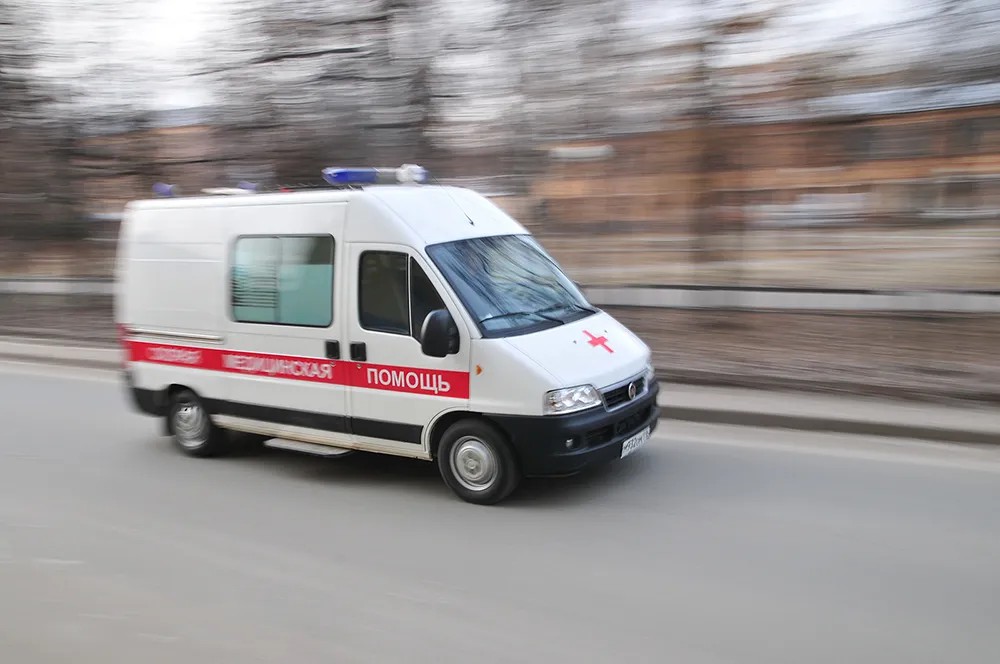
Stories of people in need.The average doctor’s salary in Russia is 80,000 rubles (around $1,200) while other medical personnel can receive 40,000 rubles (around $600). Junior staff and cleaners even less- some as little as 12,000 rubles (around $170). Salaries are higher in Moscow though, so some travel further to work in the capital. This month, President Vladimir Putin announced bonuses for health care workers treating Covid-19.
Stories of heroism and resilience. Despite all this, every day, across every Russian region, doctors, nurses, and medical professionals stand on the frontline of the battle with the so-called “invisible enemy”. This is their truth.
Want to get the full story? Click the links below for full-length articles in Russian.
A paramedic from the Moscow region, who asked to remain anonymous.
When it all started, we still had old hazmat suits, they were already two years past their date of sterility. As soon as they ran out, we got new [protective equipment]. But these were ordinary, three-ply masks, three per person per day. And paper-thin hazmat suits. You put them on carefully because if you pull even a little, they rip.
The thing is, this first and second wave, which has not even reached its peak, will take out about 30 percent of medics. Who will continue to treat people? For some reason, the authorities don’t think about that. We are not immortal gods - we are ordinary people who will get sick just like everyone else. And even more so because we are weakened by crazy workloads.
Dmitry Belyakov, a paramedic part of an ambulance coronavirus brigade in the city of Zheleznodorozhny, located in the Moscow region.
There are two to four coronavirus call outs a day […] But my lifestyle has not changed much. I work and live a calm life. I pay my debts. A paramedic’s salary doesn’t mean you’ll pay them off in your lifetime though. Eh, nevermind!
I don’t believe the official figures. If a person tests positive for coronavirus but dies of heart failure, what did they die from? It can be recorded as either. All our data gathering is built on this [flawed] principle.
All ambulance workers have the desire to leave, everyday. But an ambulance is like a swamp. If it sucks you in, it doesn’t let go. It’s a different world, with different people, a different country, different jokes.
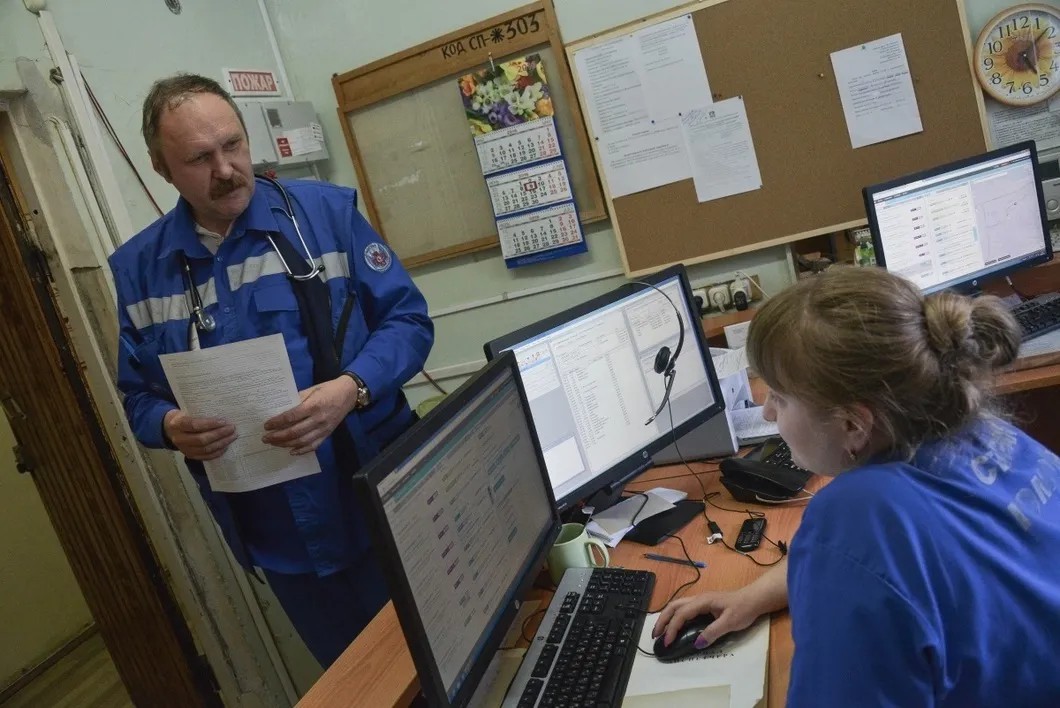
Andrey Atroshchenko, head of the coloproctology department at the Central Clinical Hospital of the Presidential Administration, which has become a facility for COVID-19 patients.
The number of sick people is so great that, most likely, in the near future, all doctors will have to participate in the elimination of this pandemic no matter their specialty. This problem will affect everyone. So there’s no point sticking your head into the sand. It is better to know the enemy and be ready for it.
Every time you need to go to the restroom […] you need to undress and then go through the sanitary inspection room and get dressed again. It takes about 40 minutes. You can last through an 8-hour shift. But there are 12-hour, 24-hour shifts. That’s when you need to think about diapers. I haven’t had to wear them so far, but my colleagues do.
I’m not living with my family at the moment. They are in the country. Every time I test negative for coronavirus, I come and spend a few hours with them on the street, while social distancing. It's hard when the children are waiting for you. They want to hug you, but you can’t hug them. Still, it’s still easier to at least see them from a distance of two meters away than to not see them at all.
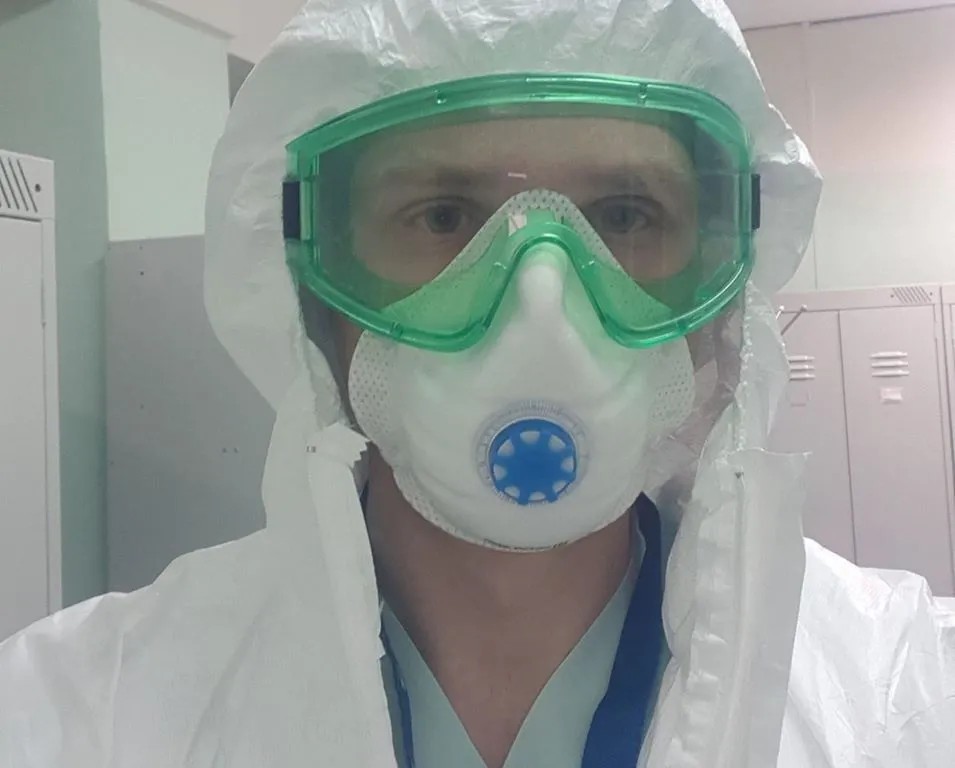
A nurse in Moscow, who asked to remain anonymous.
Поддержите
нашу работу!
Нажимая кнопку «Стать соучастником»,
я принимаю условия и подтверждаю свое гражданство РФ
Если у вас есть вопросы, пишите [email protected] или звоните:
+7 (929) 612-03-68
The main problem now is the lack of space in hospitals. Hospitals are crowded. I do not want to cause a panic, I just want to emphasize - please really assess your risks before going to hospital… The protective suit is very hot, it doesn’t let the body breathe, you sweat. The respirator is the most uncomfortable part […] I sometimes get hypoxia from wearing the respirator for a long time, mainly in the morning, around 5-6 am. During these hours you need to take blood and do morning examinations before the next shift arrives, but you don’t have any strength left at all. You sit there and you can’t do anything, there is fog in your head. But you need to keep it together.
Friends and colleagues said: quit! But I can’t. I think I’d feel like a rat, who jumped ship.
Everyday, I dream that when the pandemic is over I’ll go to Bali. I was planning to get married in August. Now everything is in question.
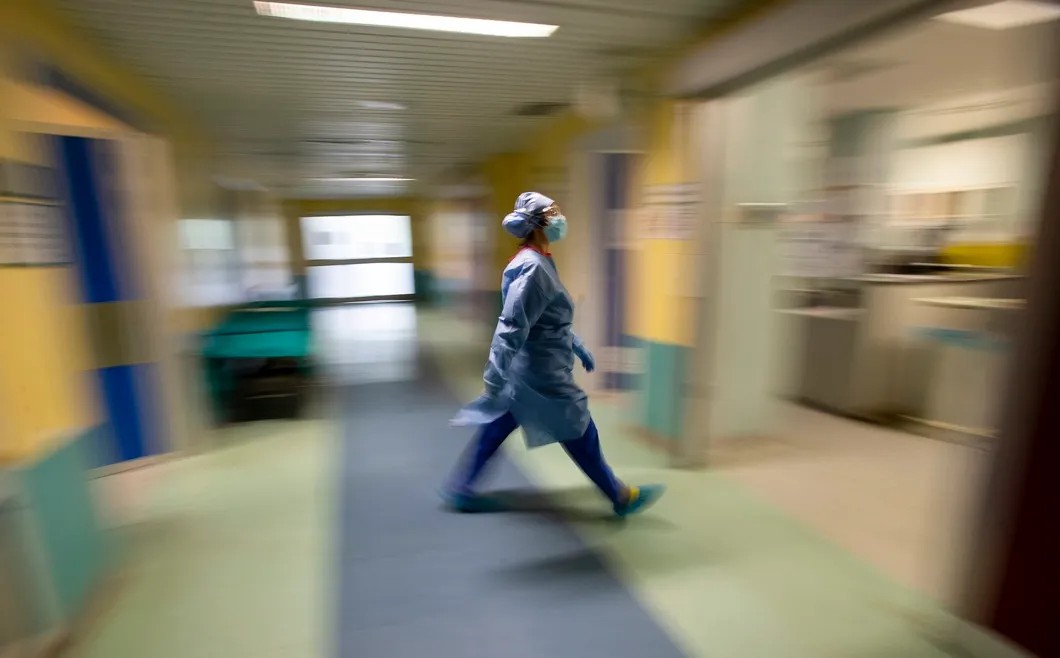
A midwife from Ufa, who was among those locked in one of three hospitals placed under quarantine in the city.
Our maternity clinic closed on April 6. We came to work on the 7th. They let us into the quarantine zone without a single word. On the 7th, we still took in four pregnant women. Can you imagine? Pregnant women in the quarantine zone…
They’re not given us any [personal protective equipment]. No masks, no caps. There are a few disposable protective kits in the reception department, but they are for emergencies. They ordered us to close off the ventilation with sacks…
We had a nurse escape from quarantine. We don’t know what’s going to happen to her. They say that she will be detained. She lives with her mother, she has an elderly mother. She was forced to run away. We are guarded by the National Guard of Russia.
They say there are several doctors who are sick. Head of reanimation and head of the morgue… Doctors are also sick in the rheumatology department, in surgery too. Doctors just take some of the drugs they have and continue to work. Because there is no one to replace us.
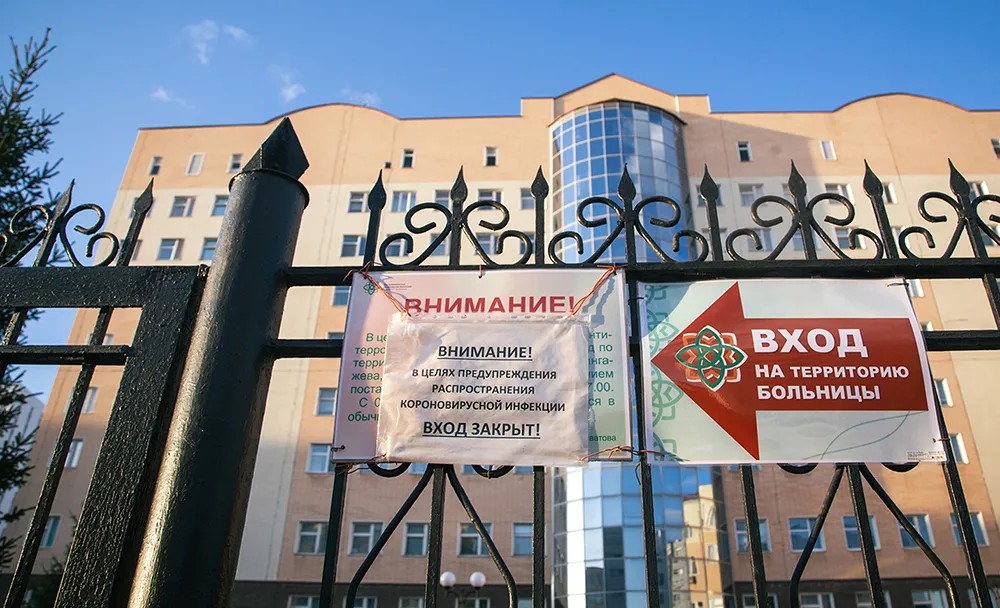
An ICU anesthetist from Moscow, who asked to remain anonymous.
I have been working in Kommunarka (Moscow’s coronavirus-dedicated hospital ) since March. My family took this news like I was going to war. Phone calls and words of encouragement from home are like letters from the front…
We have people from completely different social backgrounds and with completely different views. These include those who flew in on their private jets into Vnukovo-3 [a VIP terminal of the Moscow-based international airport - ed.] from Courchevel [a French Alps ski resort - ed.], and the lonely pensioner who was brought in from home, for example.
Everyone should now realize that their contribution to the common cause could be colossal. All you need to do is just not leave the house! This is a situation where you can save the world while sitting on the couch. A chance like this comes around rarely, but, as we now see, some people underestimate the degree of the impending threat. We all need to turn on our brains.
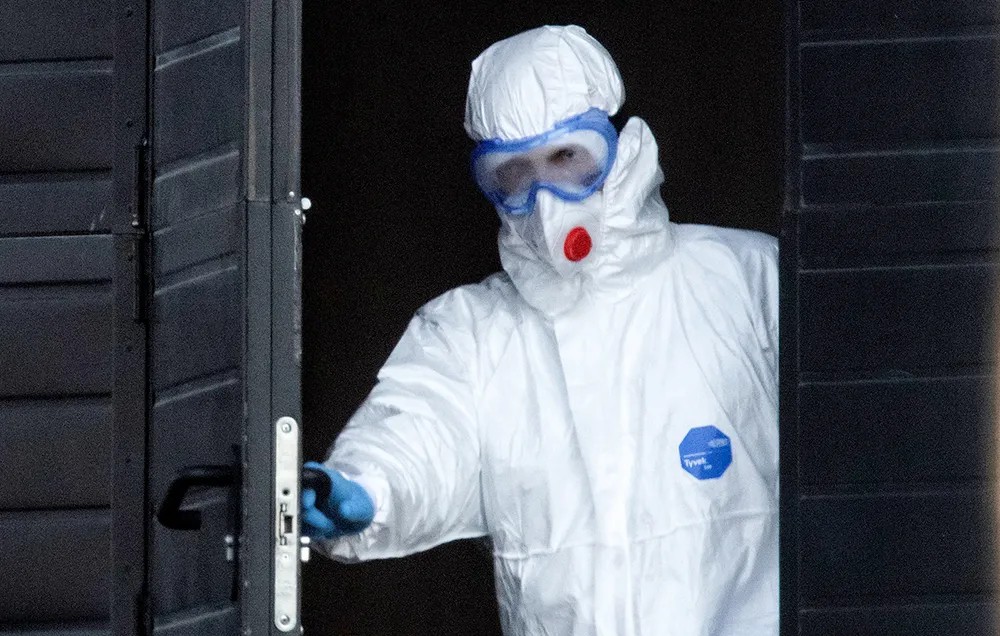
An infectious disease specialist from Moscow, who asked to remain anonymous.
Of course everyone is very tired, especially since being on duty now means that they can’t sit or lie down, so all 24 hours a person is on their feet and many of the nurses and junior medics travel from far away, whether that’s from the Moscow region or other nearby regions. Their salaries are not very high. But in the regions, including the Moscow region, the salaries are meager and absolutely impossible to survive on. That’s why they go to Moscow hospitals.
It often happens that we finish our shift at, say, 8 o’clock in the morning but end up staying two, three or four hours longer in order to complete and formalize all the medical documentation. I took over an 8 o’clock shift from my colleague, I went around to different departments, and at midday I saw her in one of the resident rooms, and she’s sleeping at the table. I woke her up, it turned out - yes, she completed the medical history, but since she was on her feet for 24 hours, she simply fell asleep at the table.
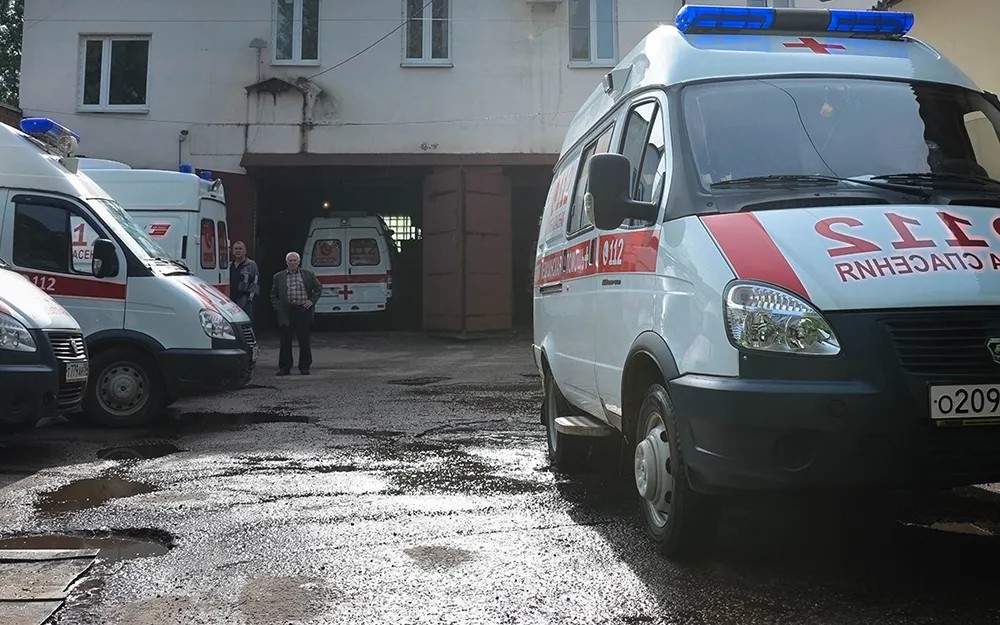
Svetlana Dzhanarova, a healthcare assistant at the Nichogi Regional Infectious Clinical Hospital in Astrakhan, southern Russia.
We have 37 patients with coronavirus. We give them something to eat, we clean. I think we have protection — an apron, pajamas. Many were afraid, many did not come to work. But nobody really asked us. I didn’t even know I could refuse. We were told to come, so I came… I have never had the flu, I have never been ill with anything. But [..] we eat garlic, we eat onions, drink hot tea with lemon - they say it kills microbes, supports the immune system. We do it both at the hospital and at home, constantly. Garlic and onions everywhere.
Other Top-Stories Russia Has Been Reading
- Exposed War Crimes by Russian Mercenaries in Syria. Part II. One of our most-read stories this week is a new episode in our investigation into a killing rampage by several Russian mercenaries from the Kremlin-linked private military company the Wagner Group. Last November we published the first part, identifying the responsible for gruesome torture and murder of a Syrian man. Our new investigation episode claims that there were at least two victims - the Wagner mercenaries were photographed with another severed head. Under Russian law, there is no statute of limitations on Russian citizens killing a person - a crime punishable with up to 20 years in prison. Despite the evidence provided by Novaya Gazeta, a criminal case has not been opened, no investigation is underway. The disturbing story exposes Russia’s deepening and problematic involvement in the Syrian civil war. In addition to Russian private military groups operating in the country, the Russian government has had over 60,000 troops of the Russian Armed Forces on the ground there since September 2015. Russia has also been supporting the Assad government politically and with military aid since the Syrian Civil War began in 2011.
Поддержите
нашу работу!
Нажимая кнопку «Стать соучастником»,
я принимаю условия и подтверждаю свое гражданство РФ
Если у вас есть вопросы, пишите [email protected] или звоните:
+7 (929) 612-03-68
